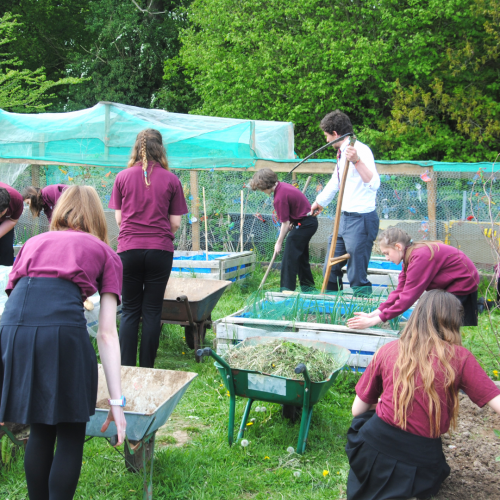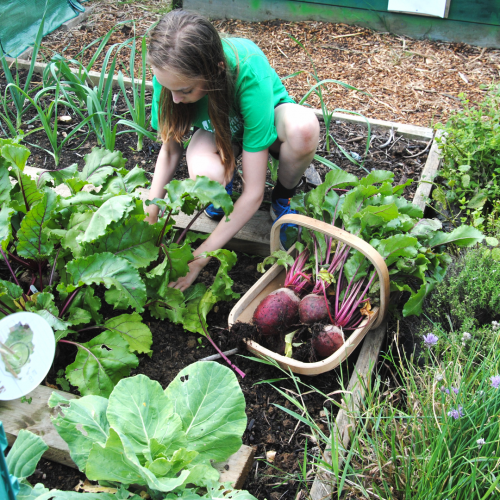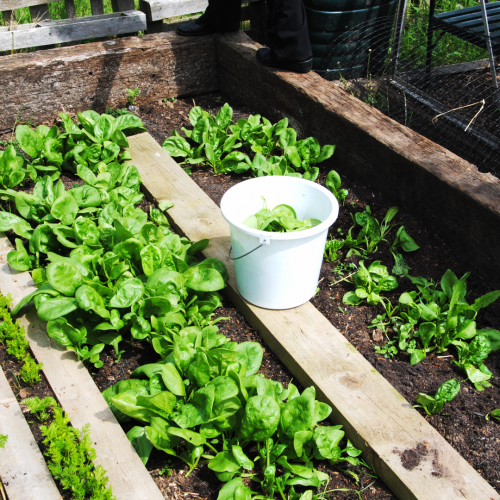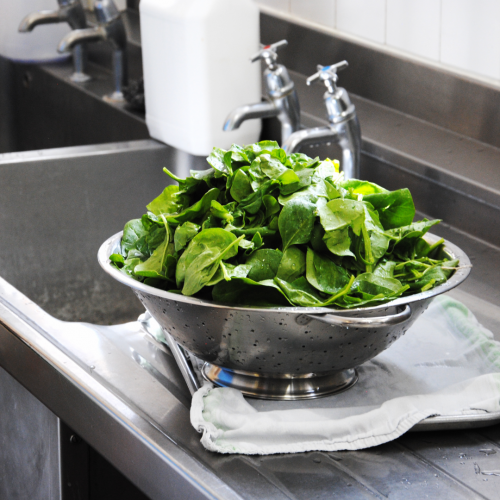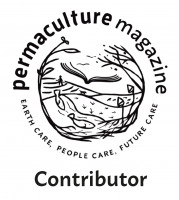For the environment, for sustainability and for the future
We live in a world which is unsustainable and one that largely works against, and not with, the environment. We only produce half of what we consume in the UK with 30% from EU nations along with over 16% from African, North and South America, Asia and Australasia combined. [1] In 2017 the UK was exporting unprecedented levels of food abroad. The carbon footprint created by importing and exporting our food is seriously alarming in a world in which climate change is increasingly being recognised as the most serious threat to humanity in 1000 years.[2] What we do produce in the UK is predominantly and conventionally grown using fossil fuel based products from chemical fertilizers to pesticides along with our huge dependency on diesel powered machines to harvest vast monoculture fields. Not to mention of course the colossal volumes water that is used to produce our food.
For the sake of the environment, it is absolutely crucial that we now look to growing organic food locally to where we live, work and learn, be this in our back garden or, of course, on an allotment. By growing food in this way there is virtually no carbon footprint created and knowledge is gained by people, especially children, about how our food is produced. Buying food from a supermarket, often wrapped in plastic, means that we have no connection to it nor do we know where or how it was grown. Even if food is grown in the UK, it will have often travelled hundreds of miles to get to where it will be consumed. Serious questions are now being raised about the world’s food security in light of the fact that we clearly produce far too much food in an unstainable way. We must think locally about community based food growing.
Learning to grow our own food, and thinking locally about it, is absolutely key to leading more sustainable lives and is entwined with how we can make a better, more environmentally friendly and ethical world. All hope now lies in the next generation to teach all future generations to the same. This, to know surprise, is why The Papillon Project believes that there is no better place for children and young people to learn and respect how to grow their own food than at school as part of their educational experience. A school allotment should therefore be designed to inspire children and young people so they can inspire each other to think about growing their own food in the future. This has to be the future of humanity, but, as Jane Goodall once stated:
“I am not alone in saying that we have a window of time, a window to start changing the direction, but it depends on changing attitudes … [but] if our young people lose hope, then we may as well give up.” [3]
The wise words of Bill Mollison, the co-founder of ‘permaculture’, continues to inspire many about what we need, as humans, to live a good life:
“All we need to live a good life surrounds us. Sun, wind, people, buildings, stones, sea, birds and plants. Cooperation with all these things brings harmony, opposition to them brings disaster and chaos.
[1] https://www.gov.uk/government/statistics/food-statistics-pocketbook
[2] https://news.sky.com/story/climate-change-worlds-biggest-threat-in-1-000-years-says-david-attenborough-11571012
[3] Jane Goodall “Mother Earth”: https://www.youtube.com/watch?v=48mxaQtbUdU&t=302s
Images below show...
Lunchtime volunteers at ‘The Allotment Project’ at Reepham High School with Holly harvest food to sell to the local community via the market in Reepham.
Spinach being harvested at Reepham High School to then being washed and prepared for eating during the lunch hour that same day!
